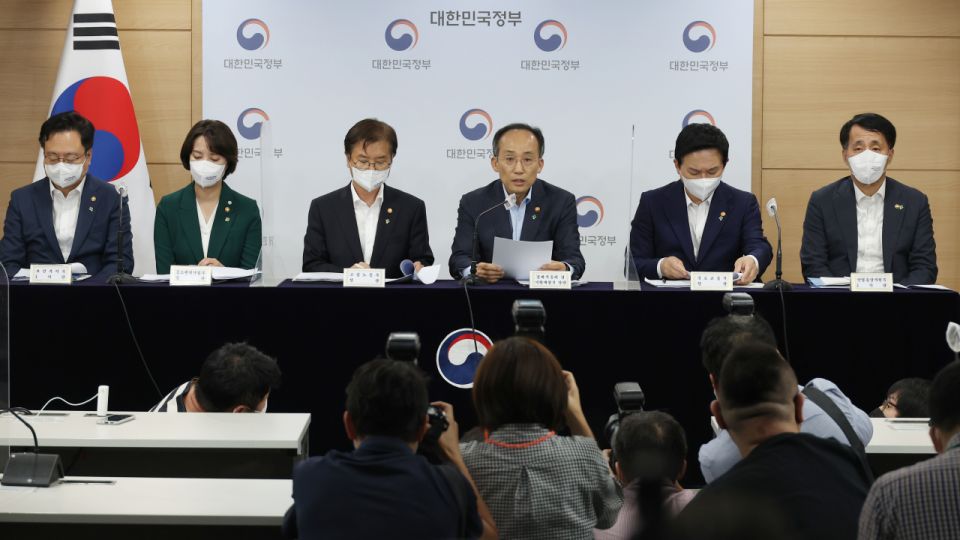June 17, 2022
SEOUL – The Yoon Suk-yeol administration on Thursday unveiled a five-year plan to pursue a business-friendly and market-oriented economy by carrying out intensive deregulatory measures and alleviating the corporate tax burden.
In a major shift from the previous administration‘s liberal agenda of an income-driven economy, the new government also vowed to minimize state intervention in the market. In addition, the plan includes a series of reforms, such as restructuring the national pension system.
Announcing the five-year plan, Deputy Prime Minister and Finance Minister Choo Kyung-ho and other ministers, said in a joint statement that the core of the Yoon administration’s economic policy is deregulation.
“(The administration) will ease a variety of regulations, which have restricted the freedom and creativity of the private sector,” read the statement.
The government will abstain from excessively intervening in the market, under which the economy would shift to one that emphasizes “the private sector, businesses and market-based activity,” said the statement.
To promote business investment and job creation, the administration plans to slash the corporate tax ceiling to 22 percent of their earnings, from the current 25 percent. It will also revise the taxation system to resolve double taxation on businesses at home and abroad.
In addition, the government will revise the inheritance tax law to help family-controlled corporations transition managerial power smoothly.
For the next five years, structural reform will take place in five sectors — fiscal affairs and pensions, labor, education, finance and services, according to the plan.
The Ministry of Health and Welfare will move to reform the national pension system by holding a series of public hearings. The ministry plans to unveil the national pension reform plan during the second half of the year.
As for educational reform, the Ministry of Education plans to provide universities and colleges with more autonomy in order to foster human resources in high-end industries.
On market reform, the Finance Ministry, in consultation with the Financial Services Commission, will abolish the tax on capital gains from stock transactions which were to be applied to all investors who earn more than 20 million won ($15,500) through share trading, starting next year.
Marking a U-turn from the previous government‘s tax scheme, the new plan will impose a capital gains tax on an individual who holds stock worth 10 billion won or more.
In a separate announcement, the finance ministry revised its growth target for the 2022 economy down to 2.6 percent, from its earlier suggestion of 3.1 percent.
It also drastically raised its prediction of inflation this year from 2.2 percent to 4.7 percent.
The ministry said this gloomy outlook is based on a variety of economic issues at home and abroad. It also warned of the possibility that the nation would face another variant of COVID-19. Nevertheless, the growth of private consumption is projected to reach 3.7 percent this year, it said.


